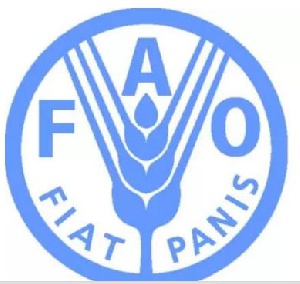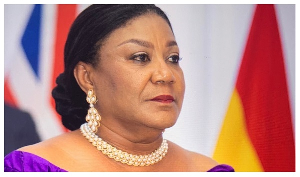Ensuring people have access to food by keeping borders open for trade is critical during this period of COVID-19 and to achieving the Sustainable Development Goals, the Food and Agriculture Organisation (FAO) Director-General QU Dongyu, has said on Tuesday May 5 during the first meeting of the Task Force on the impact of COVID-19 on Food Security and Nutrition in Africa.
The meeting – co-convened by Qu and Angela Thoko Didiza, Minister for Agriculture, Land Reform and Rural Development of South Africa and Chair of the African Union Specialized Technical Committee on Agriculture, Rural Development, Water and Environment was moderated by Josefa Sacko, Commissioner for Rural Economy and Agriculture, of the African Union Commission.
Task Force members included the European Union, the African Development Bank, the World Bank, the International Fund for Agricultural Development (IFAD), the World Food Programme(WFP) and the African Union Development Agency (AUDA-NEPAD). The main role of the Task Force is to help coordinate the actions set out in the joint political declaration made in April by Africa’s Ministers for Agriculture, with support from FAO and the African Union, on protecting food security and nutrition during the COVID-19 pandemic. In the declaration, the Ministers committed to minimizing food system disruptions while ensuring measures are in place to contain the spread of the virus, along with other measures to safeguard food security and nutrition.
The Task Force will also provide coordinated support to any new food security “hot spots” resulting from COVID-19, with particular focus on countries facing multiple threats such as the Desert Locust infestation in Eastern Africa.
During the meeting the FAO Director-General underscored the need to support the most vulnerable in Africa, including Small Island Developing States (SIDS) and the need to do this through innovation throughout the food supply chain, including the adoption of digital agriculture technologies. Qu stressed the need for a coordinated and holistic approach and the need to match advocacy with concrete action to ensure the food systems transformation.
Minister Didiza agreed on the need to ensure the timely movement of goods and produce in line with crop production calendars. She also pointed to the need to support farmers with protective equipment and to ensure they have access to water for adequate hygiene in addition to other needs.
Commissioner Sacko, urged all parties to work together to defeat COVID-19 through solidarity, coordination and unity.
With many African countries still dependent on food imports, greater emphasis needs to be placed building the resilience of the continent’s food systems, Sacko said.
For his part, Wolfgang Burtscher, the EU’s Director-General for Agriculture and Rural Development also stressed the importance of trade and aligning responses to ensure that supply chains are not broken. There is a need to ensure that the current health crisis does not become a food crisis.
Click to view details



Business News of Wednesday, 6 May 2020
Source: laudbusiness.com

















